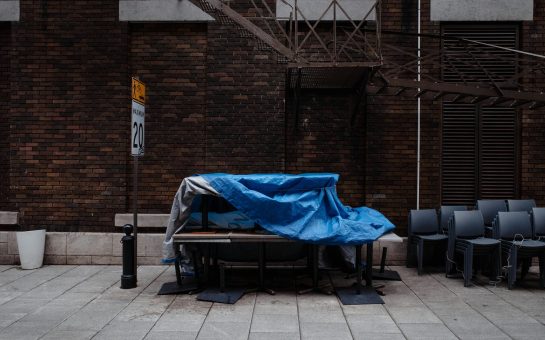More than half of prison leavers were released without settled accommodation between April 2020 and March 2021, new data reveals.
In London, nearly a third of prison leavers were released homeless or to unknown circumstances in this period, significantly increasing the likelihood they will reoffend.
London-based resettlement charity Switchback recently launched a campaign calling for all prisoners to be released with access to the essentials they need to survive.
Switchback founder and CEO Alice Dawnay said: “Without a stable place to live, people can’t move forward.
“Over and over again, we meet people who want to make a new start after prison but are held back by homelessness and hardship.
“This is a huge waste of human potential and often pushes people straight back into reoffending, which in turn drives crime, puts a strain on public spending and makes everyone less safe.”
Across England and Wales, 3,194 prison leavers were released homeless between April 2020 and March 2021.
In London, 1,326 prison leavers were released homeless or to unknown circumstances in this period.
Prison leavers who are released homeless are more than 50% more likely to reoffend within a year, according to Ministry of Justice data.
Reoffending makes up 80% of all convictions and cautions, creating a £18 billion annual economic impact.
Out of 32,941 prison leavers released across England and Wales in this period, 20,191 were released without settled accommodation.
Switchback’s “Reshape Release” campaign calls for all prison leavers to have access to housing, a travelcard, shopping vouchers and a working phone upon release, in addition to the one-off payment they are currently given.
The one-off discharge grant increased this summer for the first time in 25 years from £46 to £76, after campaigning by charities including Switchback.
The grant will increase in line with inflation each year until 2024/2025 in England and Wales.
Switchback welcomed this increase but argued that prison leavers need more support to prevent them from re-entering the difficult circumstances that contributed to their original offence.
Patrick, a 22-year-old prison leaver supported by Switchback, said: “I was taken to the gates by a group of officers and let out the door with three bags, no phone and no way to contact anyone.
“The reason I got sent to jail was not having money and being homeless.
“Releasing me into the exact same situation doesn’t make any sense.”
Temporary basic accommodation is being offered to some prisoners at risk of homelessness through a £20 million Government scheme that launched last month.
The scheme is intended to support around 3,000 prisoners over the next year across five of the 12 new National Probation Service (NPS) regions: Yorkshire & Humber, Greater Manchester, the North West, the East of England and Kent, Surrey and Sussex.
Housing Secretary Robert Jenrick said: “By supporting offenders into their own accommodation and keeping them off the streets they’ll have a better chance of turning their lives around – reducing reoffending and making our communities safer.”
A further £13 million Government funding will be shared by more than 140 English councils to help prison leavers find longer-term accommodation, including in the private rental sector.
Lord Chancellor Robert Buckland said: “The combination of strong supervision from probation staff and support into treatment, a home and a job will drive down crime.
“It gives offenders the incentive and opportunity to break the cycle of repeat offending and will save thousands of law-abiding people from becoming victims.”
Switchback encouraged these initiatives but criticised the fact that prison leavers in London and six other regions will not benefit from this support.
The charity also called for longer-term planning to support prison leavers with securing accommodation.
Shadow Minister for Prisons and Probation Lyn Brown described prison leavers becoming homeless as a “double tragedy.”
Ms Brown said: “Ministers need to understand the depth of this issue and produce a long-term strategy to fix it.
“Underfunded pilot projects in just a few areas of the country won’t meet the real needs of people leaving prison and won’t protect our communities by stopping reoffending.”
HM Prison & Probation Service marked its first ever ‘Probation Day’ on Saturday 21 August.
The event highlighted successful probation partnerships and recognised probation staff as “hidden heroes” who work to discourage people from reoffending.
Switchback is a multi-award-winning charity that supports 18-to-30-year old men to find a stable, new path after leaving prison through mentorship and partnerships.
91% of Switchback Trainees do not reoffend within a year of leaving prison.
More information about Switchback and the “Reshape Release” campaign is available on the charity’s website here.
Featured image credit: Petr Brož




